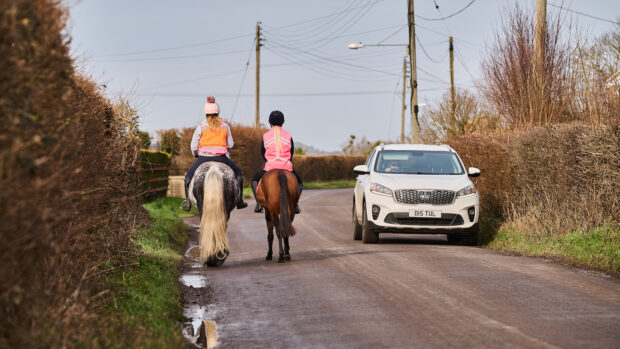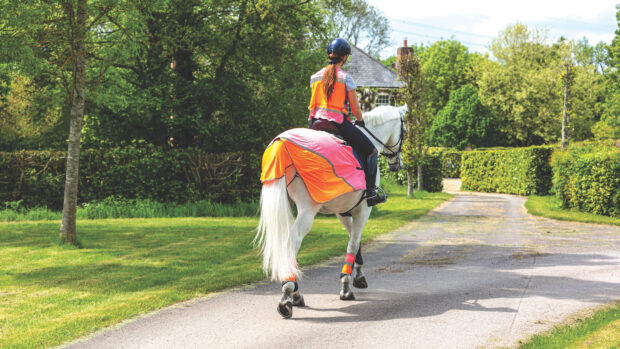Over a 3rd of all breakdowns are tyre-related, says transport expert Jon Phillips. And according to leading tyre safety organisation TyreSafe, 78% of us are risking our horses by driving with under-inflated tyres.
Horseboxes and trailers are particularly high risk, due to “their heavy loads and irregular usage”, especially at the start of the summer competition season.
“Tyre pressures are as important as oil and water levels,” said Jon Phillips of the Organisation of Horsebox and Trailer Owners.
“Incorrectly inflated, they considerably increase the chance of a blowout, while affecting handling, steering and tyre wear.”
Stuart Jackson, chairman of TyreSafe, gave the new figures at the British Horse Society (BHS) safety conference in March, warning of the dangers.
BHS senior safety executive Sheila Hardy said tyres were “often overlooked”.
“Horsebox tyres are particularly vulnerable, as they often stand all winter, exposed to sun and frost, and the rubber perishes. Inspect the walls for splitting, which is often not obvious until you are moving.”
Amateur rider Liz Neville was towing a trailer along the M25 when a tyre blew.
“I hadn’t used the trailer over the winter and, as the tyres were quite new, I didn’t think to check them,” she said.
“The police had to close the motorway while my horse was transferred to another trailer. No one was hurt, but it was very stressful and expensive.”
Mr Jackson also warned that trailer tyres usually require higher inflation pressures than car tyres. The recommendation is to increase the towing vehicle’s rear pressures by 4 to 6 PSI (0.3-0.4 bar) to improve stability.




